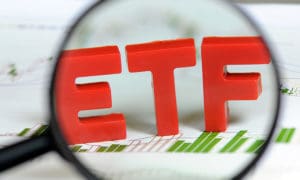Along with many other market participants, I was somewhat stunned when I learned that the South Korean Financial Services Commission banned short selling last weekend. The ban is set to remain in place until June 2024. By no means do I consider myself qualified to weigh in on political considerations in that country, but I am always adamant when I believe that the practice of short selling is vilified.
For the record, I visited Seoul in 2019 – my last major pre-Covid trip – and loved the people, the food, the vibe, the whole experience. But I also learned that there are deep political rifts within the country, and that those could have played a role in the timing of the measure ahead of general elections next year. Short-selling bans are typically implemented when markets are panicky. Considering that the benchmark KOSPI index was up about 6% year-to-date prior to the decision, one must consider that this decision was not only about protecting a fragile market from predatory selling. Yet the index had fallen about 12% from its year-high on August 1st and is more than 30% below its all-time high of August 2021. No incumbent politician or party wants to run for re-election when faced with a weak market.
It is understandable why many choose to demonize the practice of short selling. If there is virtue in buying low in the hopes of selling high in order to support the companies that are the backbone of every capitalist economy, it stands to reason that the inverse – selling high in the hopes of buying low – would strike many as unpatriotic or unethical. But that is an inappropriate comparison. Just as savvy investors seek to profit from finding undervalued shares, short sellers seek to profit from finding overvalued shares. Neither case involves a moral judgment, yet one is often viewed through a moral lens.
The practice of short selling came to the fore during 2021’s meme stock craze. Individual investors, linked by social media, noticed that some beloved companies had high short interest. At that time, we noted that the link between a disparate group of so-called meme stocks was that there was an element of nostalgia, writing:
They’re all things a 20-something person would be nostalgic for. GameStop, AMC, Nokia, Build-a-Bear – things that would make you sad to hear are failing business because it means that you’re old.
We all know what transpired. The energized retail horde transformed into a frenzy, and the most prominent short seller of GameStop (GME) lost billions. But it is also important to keep in mind that the frenzy eventually ebbed and the most of those stocks are well below their 2021 peaks (though Build-a-Bear (BBW) is indeed higher).
Short sellers understand the risks, and they also understand that they face significant disadvantages. Foremost is the fact that there is an asymmetry of risks and returns. When you buy a stock, you know that your potential loss is limited to your initial investment but that your potential gain is unlimited. The opposite is true for short selling. The stock can’t fall below zero but can rise infinitely.
Next is that short selling is more costly than buying. One can pay cash for stock. The money is spent up-front, no margin interest payments are required, and any dividends are reaped by the owner. In contrast, every short sale involves margin. Legal short-selling – requires the seller to borrow the shares that they must deliver. Remember, the buyer doesn’t know who is selling him his stock. They only know whether the stock is delivered to their account, not by whom or how. There is a cost to borrowing those shares, and that cost can be quite high. It can, and often does, move higher with little or no warning. That means that the short seller is paying interest constantly, along with compensating the owner of the borrowed shares for any dividend payments. (This IBKR Podcast, where I interview our North American stock lending manager, explains the process in greater detail.)
Notice that in the prior paragraph that we used the phrase “legal short selling.” In the US and most other countries, short selling is highly regulated. I offer no defense for illegal, or “naked” short selling, when traders sell short without borrowing the necessary shares. Quite frankly, that has become increasingly hard to do in most countries, but it does remain a black mark on the practice when it occurs. I believe that its prevalence is wildly overstated, though naked short sellers become a very convenient bogeyman for the frustrated managers of underperforming stocks.
Many people have an understandable distaste when short sellers make unflattering comments about their targets. “How dare they try to talk these stocks lower? They’re just talking their book.” But consider how many people have a vested interest in talking up stocks. Turn on business media for just a few minutes and the various types of positive commentary, whether it is analysts at top firms with buy recommendations or traders breathlessly speaking about their latest purchases. In some cases, they are legitimately informing investors about undervalued stocks, but other times they are piling onto already overhyped situations. Just as stocks can become cheap, they can also become expensive. An efficient market requires people on both sides to maintain something resembling fair value.
I stand by a comment I made earlier this year when talk of short-selling bans in the banking sector came to the fore:
Healthy companies don’t go to zero simply because there is an abundance of short sellers.
If there is a fundamental value to a company, someone will buy its stock. Markets are much more attuned to spot undervaluation than they are at overvaluation. Remember, there are many more traders and investors who specialize in the former than the latter. Furthermore, it is illogical – not to mention unprofitable and insanely risky – for short sellers to continue pressing their bets on low-priced healthy companies. The practice of short selling requires a high level of risk management and vigilance. It is one thing to short the stock of a company, good or bad, when its price or valuation becomes excessive. It’s another thing entirely to attempt to do that when a company is fairly priced. That’s when you cover your shorts, not press them.
I prefer to think of it this way – short sellers provide some lubrication that ultimately helps the stock market engine to function properly over the long term. And by the way, unless a stock really does go to zero – and remember, healthy stocks don’t do that – all shorts need to be covered. In other words, short sellers eventually need to become buyers. It’s all just a question of price, and there is no reason to prevent both sides of the market from participating in price discovery.
Join The Conversation
For specific platform feedback and suggestions, please submit it directly to our team using these instructions.
If you have an account-specific question or concern, please reach out to Client Services.
We encourage you to look through our FAQs before posting. Your question may already be covered!
Leave a Reply
Disclosure: Interactive Brokers
The analysis in this material is provided for information only and is not and should not be construed as an offer to sell or the solicitation of an offer to buy any security. To the extent that this material discusses general market activity, industry or sector trends or other broad-based economic or political conditions, it should not be construed as research or investment advice. To the extent that it includes references to specific securities, commodities, currencies, or other instruments, those references do not constitute a recommendation by IBKR to buy, sell or hold such investments. This material does not and is not intended to take into account the particular financial conditions, investment objectives or requirements of individual customers. Before acting on this material, you should consider whether it is suitable for your particular circumstances and, as necessary, seek professional advice.
The views and opinions expressed herein are those of the author and do not necessarily reflect the views of Interactive Brokers, its affiliates, or its employees.





















Excellent, succinct comment.
Nothing makes us happier than satisfied readers.